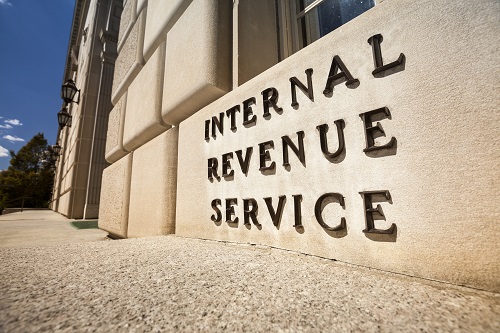AICPA and Eight Other Tax Practitioner Groups Unite to Recommend IRS Taxpayer Service Improvements
April 20, 2017

The American Institute of CPAs (AICPA) and eight other organizations representing diverse segments of the tax practitioner community presented to federal lawmakers on April 3 a comprehensive set of recommendations designed to improve services provided by the Internal Revenue Service (IRS) to taxpayers and tax practitioners. The groups called for an improved governance and oversight structure for the IRS and proposed a new unit within the IRS that would centralize the agency’s services to tax practitioners.
The AICPA convened the organizations to explore ways to improve the agency’s taxpayer services. It was the AICPA’s most recent action of its ongoing efforts to improve IRS taxpayer services.
The recommendations were developed by the organizations over several months. Over the course of this process, the AICPA spearheaded an effort to identify and promote realistic, but meaningful, recommendations that would help IRS become modernized and respected. The result was that the recommendations were endorsed by the AICPA, as well as by alliantgroup, LP, Crowe Horwath, LLP, National Association of Enrolled Agents, National Association of Tax Professionals, National Conference of CPA Practitioners, National Society of Accountants, National Society of Tax Professionals, and PADGETT BUSINESS SERVICES®.
Among the governance and oversight recommendations are:
- Setting and maintaining consistent priorities and strategic direction;
- Re-establishing the annual joint hearing review by the Joint Committee on Taxation;
- Requiring the Joint Committee on Taxation to provide a bi-annual report;
- Requiring a Government Accountability Office review of the IRS Oversight Board;
- Enabling the hiring of qualified and experienced professionals at the IRS;
- Determining the appropriate level of service and compliance they want the IRS accountable to provide and dedicating appropriate resources for the agency to meet those goals; and
- Gauging performance with customer satisfaction surveys.
Also recommended is a new dedicated “executive-level” practitioner services unit within the IRS that would centralize and modernize the IRS’s approach to all practitioners. The groups explained that over time, the IRS has established a number of functional departments. As a result, IRS employees are dispersed across the IRS and are not coordinated in a way that enables practitioners to timely access critical information (such as their clients’ account status or the availability of dispute resolution opportunities). Nor do the current IRS teams or processes systematically solicit, gather or evaluate practitioner feedback, they charged.
“Enhancing the relationship between the IRS and practitioners would benefit both the IRS and the millions of taxpayers served by the practitioner community,” they wrote. “We are committed to a service-oriented, modernized tax administration system that earns the respect and appreciation of all taxpayers and stakeholders."
